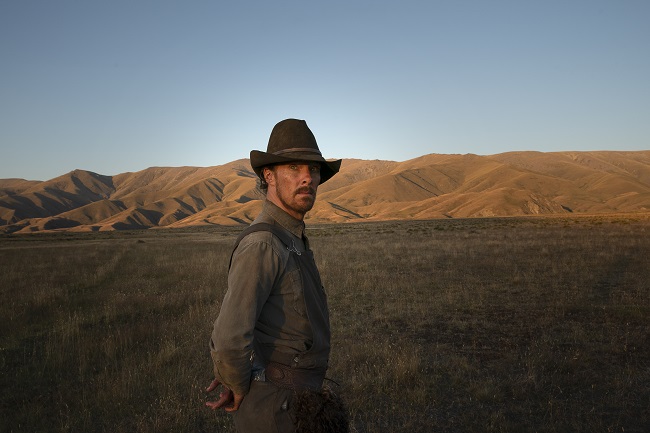
What do you worship? Jane Campion’s The Power of the Dog never asks this question explicitly, but it does examine it through its provocative riff on the Western. For cowboy Phil Burbank (Benedict Cumberbatch), it’s clear what he worships: manhood. He’s fashioned himself as the ultimate masculine man. He’s gruff and angry and despises effeminate men and women, especially his brother’s new bride, Kirsten Dunst’s Rose, who he treats as an interloper. He’s physical and intimidating and plays up his strength and resilience at every turn. For instance, he doesn’t need gloves to neuter bulls or ever want to shower. He likes to stink, as it’s a sign of his masculinity.
For Phil, manhood is personified by his late mentor, Bronco Henry, who haunts the film like a ghost. Phil mentions Bronco at every opportunity and reveres him like he reveres no one else. There’s even an altar of Bronco Henry’s old saddle ornamented in the barn, set up like an ancestor shrine. When Phil places his hands on the saddle and feels its leather, he’s communing with the dead and channeling the man he loved in more ways than one. He’s praying and worshiping.
The problem is that he’s worshiping a false idol above all else. Bronco Henry is dead and Phil’s conception of manhood is violent and abusive. He’s enslaved to a notion of what it means to be a man, and so his worship is servitude to a style of living that foregoes all emotional openness, all positive relationships, all joy. All that’s left to him is power, physical and mental, and so he seeks to bend that power to his will, which Phil does with hypnotic fervor. He first torments and then tempts Rose’s son, George (Kodi Smit-McPhee), mesmerized by his own power over the young man. Or so he thinks.
The dramatic pleasure of The Power of the Dog comes from how it upends our expectations about men of this sort and who is or is not in power in a given situation. It investigates men who make their lives shrines to their own vanity, but it also questions what happens when these men are supplanted. Intriguingly, the film references, both in its title and in narration at the film’s end, Psalm 22 and particularly verse 20: “Deliver my soul from the sword, my precious life from the power of the dog.” The first words of the psalm are quoted by Christ on the cross, as the psalm is an exhortation for protection from threats and deliverance from persecution. But Campion’s film asks about this power that threatens: is it a gift or a curse, something to drive away from the camp, or something to surrender to so as to channel its power for your own? Is it something to abhor, or to worship? In Phil, the answer to this question is obvious, but the question is nevertheless provocative and challenging, asking the viewer, yet again, what do you worship? What is the power of the dog in your life? — Aren Bergstrom
Arts & Faith Lists:
2021 Arts & Faith Ecumenical Jury — #10